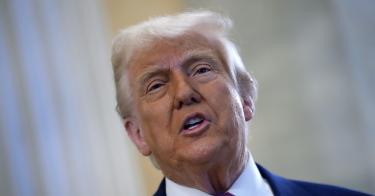Seabed mining doesn’t normally attract much media attention, but President Donald Trump’s executive order (EO) on the topic, issued on April 24, changed that in a hurry.
“A Trump executive order will unleash a global deep-sea mining boom,” a recent Economist headline reads, while Bloomberg warned, “Seabed mining is a new front in the United States versus the world.” And an op-ed in the Boston Globe is titled “America’s new gold rush may be on the ocean floor.”
Foreign leaders aren’t happy, to put it mildly. Trump’s EO directing the Commerce Department to “expedite the process” of allowing U.S. companies to mine the deep seabed caused a tidal wave of international pearl clutching.
According to a White House fact sheet, the EO seeks to establish the United States as “a global leader in seabed mineral exploration and development” and create “a robust domestic supply for critical minerals derived from seabed resources.” The order explicitly aims to “counter China’s influence in the seabed mineral resource space.”
>>> What a Success Story Looks Like: Top U.S. Priorities for the June 2025 NATO Summit in The Hague
The “international community” (in this case manifested in the Kingston, Jamaica-based International Seabed Authority (ISA)) was sent into a full-blown tizzy by the notion that the United States would dare to mine the seabed without its permission. The ISA maintains that the authority to engage in seabed mining “rests solely with ISA, as enshrined” in the United Nations Convention on the Law of the Sea (UNCLOS).
For more than forty years, and for very good reasons, the United States has rejected membership in UNCLOS. The American position won’t be changing anytime soon, not surprisingly.
ISA Secretary-General, Leticia Carvalho, perhaps believing herself to be the Empress of the Oceans, proclaimed that the seabed is “the Common Heritage of Humankind under the Convention, which serves as the Constitution for the Oceans” and that all mining activities on the seabed “must be carried out under the [ISA’s] control.”
There’s just one problem for Empress Leticia and the ISA—because the United States hasn’t ratified UNCLOS, it isn’t bound by its mining rules.
Another problem for the ISA is that it has failed to agree on a set of mining rules. It has floundered about for more than a decade, holding interminable conferences and meetings in Jamaica, none of which has resulted in a mining code.
The ISA isn’t the only group upset with President Trump for daring to exercise U.S. sovereignty. The Chinese Communist Party is also deeply dismayed by Trump’s executive order. A Chinese official, clearly in high dudgeon, protested that the move “violates international law and harms the overall interests of the international community.” Of course, the real reason China is mad is because Trump’s entry into the arena will break China’s stranglehold on critical mineral supply chains and processing.
It seems like nobody wants the United States to mine the seabed. The European Union “deeply regrets” Trump’s executive order, and the radical environmental group Greenpeace called Trump’s move “an insult to multilateralism and a slap in the face to all the countries…who oppose this dangerous industry.”
>>> Trump’s First Hundred Days Have Been a Triumph
The ISA and China maintain that only countries that ratify UNCLOS are allowed to mine the seabed. For its part, the EU thinks that the seabed mining provisions of UNCLOS “reflect customary international law and are thus binding on all states irrespective of whether they have acceded to the Convention or not.”
That is utter nonsense. The United States has every right to mine the deep seabed and may do so whether or not it is a party to UNCLOS. That has been the position of the United States since the Reagan administration, and remains its position today. Specifically, at an UNCLOS conference in 1983, the United States asserted that the treaty’s “deep sea-bed mining regime…is purely contractual in character” and that seabed mining “is a lawful use of the high seas open to all States.”
High-seas freedoms are not conditional on membership in a U.N. treaty. Neither the United States nor any other nation need be a party to UNCLOS to exercise them. Seabed mining, like other high seas freedoms—such as freedom of navigation, freedom of fishing, freedom to lay submarine cables, and freedom to engage in marine scientific research—are enjoyed and exercised regularly by the United States and other UNCLOS non-parties because they are sovereign and independent nations.
In a speech almost a century ago, another U.S. president who wasn’t shy about exerting executive power said, “Judge me by the enemies I have made.” President Trump should take Franklin D. Roosevelt’s words to heart. When China, the U.N., the EU, and Greenpeace are against you, you must be doing something right.
This piece originally appeared in The National Interest https://nationalinterest.org/blog/energy-world/trumps-interest-in-deep-sea-mining-in-the-face-of-global-pressure




